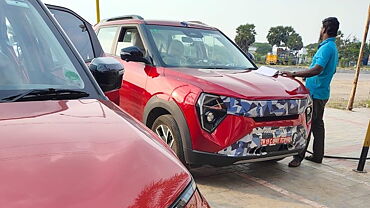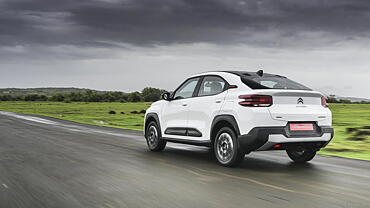
 Fuel prices are soaring sky high and there seems to be very little respite in store for us in the future. The quality of diesel engines has improved significantly. The big question that weighs us down when we look for a car for ourselves is whether we should opt for a diesel vehicle or stick to a petrol. Let me run you through some very interesting facts that may help you make up your mind.
Fuel prices are soaring sky high and there seems to be very little respite in store for us in the future. The quality of diesel engines has improved significantly. The big question that weighs us down when we look for a car for ourselves is whether we should opt for a diesel vehicle or stick to a petrol. Let me run you through some very interesting facts that may help you make up your mind.
Let us for the time being concentrate on the financial aspect alone. Throughout this article we will require a lot of factual data for which we will use average numbers. When you
compare the prices of a petrol and diesel variant of a car, you notice that you have to pay a high markup of about Rs 100,000 for the diesel version.
Most car buyers today purchase a car with the help of a car loan with the most popular tenure being that of 60 months or five years. So, for all the calculations here, let us assume the loan’s tenure as five years. When you opt for the diesel variant of a car, you end up paying at least Rs 100,000 more as mentioned earlier. This amounts to an additional loan amount of Rs 100,000 for the tenure of five years. Interest rates for car loans may vary from provider to provider. Let us assume an interest rate of 11%. So, the interest which you pay on the additional Rs 100,000 for five years at 11% amounts to Rs 55,000. The value of a car depreciates with age. Let us assume the rate of depreciation to be equal to 20% per year.
Now our difference amount (Rs 100,000) will also depreciate at 20% over the period of five years by Rs 32768. Assuming we invest this difference for the tenure of five years, an interest of 6% per year can be earned without too much effort. The interest that Rs 100,000 will earn if invested at 6% will be Rs 33822.56. So, put differently, we lose out on this earning. Now, with the interest paid, interest lost and the depreciation over the tenure of five years as calculated, the value of the additional Rs 100,000 grows to an even more sizable Rs 221,590.56! Now, the only way this “additional†expense can make sense is if the savings that it results in are substantially greater than this amount.
Let us assume the price of petrol and diesel as Rs 55 and Rs 38 per litre respectively and the fuel efficiency for the two cars as 11km per litre and 15km per litre respectively. Going by these numbers, to run a petrol car for a kilometre you pay Rs. 5 and to run a diesel car you pay Rs. 2.53. Hence, if you run a diesel car, you save Rs. 2.47 per kilometre in running costs. In order to save as much money as the difference that you pay, which we have earlier seen is equal to Rs. 221,590.56, we have to drive the car for a distance large enough for the saving per kilometre to add up to this amount. A simple calculation here (difference/savings per km = 221,590.56 / 2.47) reveals the distance needs to be at least 89834.01km over five years. To drive 89834.01km over five years, one should drive at least 1497.23km a month, which amounts to 49.91km a day! So, only if you drive a whopping 49.91km a day will a diesel car save you as much money as the additional cost you pay for the diesel vehicle. If your daily usage is less than this, you will incur a loss on the balance sheet.
This is only the balance sheet cost benefit analysis for you. Let us not forget the obvious advantages that a petrol engine has over the diesel like better refinement, lower cost of maintenance and better life! Having said that, diesel engines are getting better and the gap is narrowing at a great pace. We tend to notice only those expenses which we pay for regularly. An additional expense like this one, which fools us into believing that we are actually saving money, should be looked at again.

































